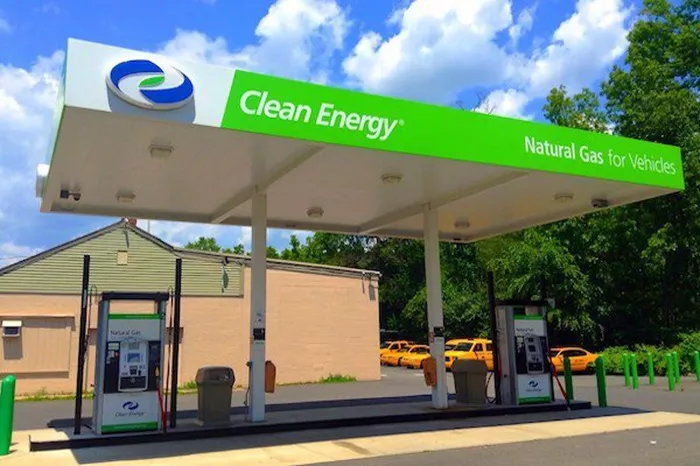As concerns about environmental sustainability continue to rise, the search for alternative fuels that can mitigate the impact of traditional gasoline on the environment has intensified. Among the contenders in this quest is eco gasoline, a promising solution that aims to reduce greenhouse gas emissions and enhance fuel efficiency without compromising engine performance. In this article, we delve into the intricacies of eco gasoline, exploring its composition, environmental benefits, challenges, and its potential to revolutionize the automotive industry.
Understanding Eco Gasoline
Eco gasoline, also known as environmentally friendly gasoline or green gasoline, is a fuel blend that incorporates various renewable and low-carbon components alongside conventional gasoline. Unlike conventional gasoline, which is derived solely from fossil fuels, eco gasoline integrates renewable sources such as bioethanol, biobutanol, or other biofuels, thereby reducing its carbon footprint.
The composition of eco gasoline typically varies based on regulatory requirements, market demands, and technological advancements. Commonly, eco gasoline contains a percentage of ethanol derived from biomass, such as corn, sugarcane, or cellulosic feedstocks. This ethanol component is often blended with conventional gasoline at different ratios, with E10 (10% ethanol, 90% gasoline) and E85 (85% ethanol, 15% gasoline) being prevalent blends.
In addition to ethanol, eco gasoline formulations may incorporate other additives and components aimed at improving fuel efficiency, engine performance, and reducing emissions. These additives can include oxygenates like methyl tert-butyl ether (MTBE) or tert-amyl methyl ether (TAME), which enhance combustion efficiency and reduce harmful tailpipe emissions.
Environmental Benefits of Eco Gasoline
The adoption of eco gasoline offers several environmental benefits compared to conventional gasoline, primarily due to its lower carbon intensity and reduced emissions profile. By incorporating renewable biofuels, eco gasoline helps mitigate greenhouse gas emissions, thus contributing to efforts aimed at combating climate change.
Greenhouse Gas Emission Reduction: The utilization of bioethanol in eco gasoline significantly reduces the net emissions of carbon dioxide (CO2) compared to conventional gasoline. This reduction stems from the carbon neutrality of bioethanol, as the carbon dioxide released during combustion is offset by the carbon dioxide absorbed during the growth of the feedstock.
Air Quality Improvement: Eco gasoline blends containing oxygenates like MTBE or TAME exhibit lower levels of harmful pollutants such as carbon monoxide (CO) and volatile organic compounds (VOCs). These additives enhance combustion efficiency, resulting in cleaner exhaust emissions and improved air quality, particularly in urban areas where air pollution is a significant concern.
Reduced Dependency on Fossil Fuels: By diversifying the fuel supply with renewable biofuels, eco gasoline helps reduce the dependency on finite fossil fuel reserves, enhancing energy security and resilience.
See also: What Is Recreational Gasoline?
Challenges and Limitations
Despite its potential environmental benefits, the widespread adoption of eco gasoline faces several challenges and limitations that warrant consideration.
Feedstock Availability and Competition: The production of bioethanol for eco gasoline relies heavily on agricultural feedstocks such as corn, sugarcane, or cellulosic biomass. The cultivation of these feedstocks may compete with food crops, raising concerns about food security, land use change, and biodiversity loss.
Infrastructure Compatibility: The introduction of higher ethanol blends like E85 necessitates modifications to existing fuel infrastructure, including storage tanks, dispensers, and vehicle fuel systems. Retrofitting or building new infrastructure to accommodate these blends can be costly and time-consuming, posing a barrier to widespread adoption.
Engine Compatibility and Performance: While most modern vehicles are designed to run on E10 blends without significant modifications, higher ethanol blends like E85 may require flex-fuel vehicles or engine modifications to optimize performance and fuel efficiency. Additionally, ethanol’s lower energy density relative to gasoline can result in reduced mileage, affecting consumer acceptance.
Policy and Regulatory Uncertainty: The production and distribution of eco gasoline are subject to various policy frameworks, regulations, and incentives that may influence market dynamics and investment decisions. Uncertainties surrounding government mandates, subsidies, and tax incentives can hinder long-term planning and investment in eco gasoline infrastructure and production.
Future Prospects and Innovations
Despite the challenges, ongoing research and innovation in biofuel technology hold promise for the advancement of eco gasoline and its integration into mainstream fuel markets.
Advanced Biofuel Production: Continued advancements in biofuel production technologies, such as cellulosic ethanol and algae-based biofuels, offer opportunities to expand the feedstock base for eco gasoline while mitigating concerns related to land use change and food competition.
Engine Optimization and Flex-Fuel Vehicles: Research into engine design and optimization techniques can improve the compatibility and performance of vehicles running on higher ethanol blends, promoting the adoption of flex-fuel vehicles capable of utilizing a wide range of fuel blends.
Policy Support and Market Incentives: Clear and consistent policy frameworks, coupled with targeted incentives and subsidies, can stimulate investment in eco gasoline infrastructure and production, driving market growth and consumer acceptance.
Collaborative Partnerships: Collaboration among stakeholders across the biofuel value chain, including government agencies, industry players, research institutions, and environmental organizations, is essential for overcoming technological barriers, addressing regulatory challenges, and fostering innovation in the eco gasoline sector.
Conclusion
Eco gasoline represents a promising avenue for reducing the environmental footprint of transportation fuels while enhancing energy security and sustainability. Through the integration of renewable biofuels and advanced technologies, eco gasoline offers a viable pathway towards decarbonizing the transportation sector and mitigating the impacts of climate change. However, realizing the full potential of eco gasoline requires concerted efforts from policymakers, industry stakeholders, and consumers to overcome existing challenges and drive widespread adoption. By embracing innovation, collaboration, and sustainable practices, eco gasoline can play a pivotal role in shaping a cleaner, greener future for the automotive industry and beyond.
Related topics:
7 Factors That Cause Diesel Fuel In The Engine Oil

